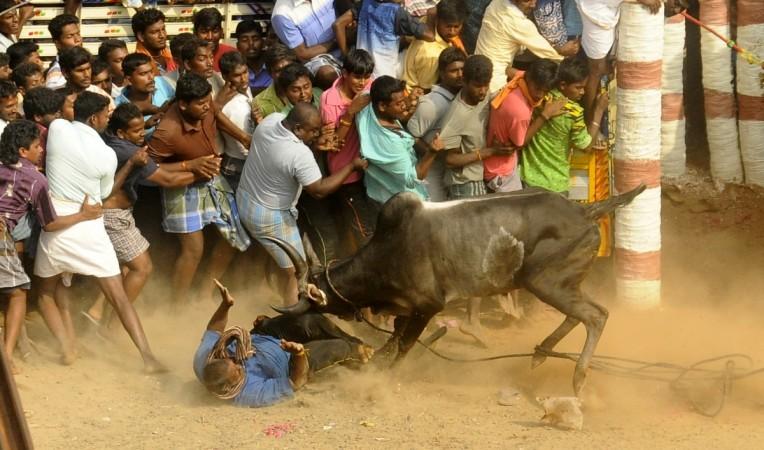
While thousands of protestors across Tamil Nadu, the nation, and the world spoke up in support of the bull-taming sport Jallikattu and demanded the ban be lifted, a Dalit leader from Tamil Nadu has spoken out in favour of the ban.
Puthiya Tamizhagam leader K Krishnaswamy, a strong Dalit leader in the state, said it was "irresponsible" of the youth to focus on bull-taming instead of the severe agriculture crisis in Tamil Nadu.
Prime Minister Narendra Modi assured TN Chief Minister Paneerselvam on Thursday that all possible assistance would be provided to the State to address the drought situation.
A central team would be deputed to Tamil Nadu shortly, the PMO said.
Krishnaswamy claimed that the bull-taming sport was played in barely 20 villages in southern districts of the state and it was not an inclusive pastime.
While Tamilians have argued that the sport is a cultural symbol, the Dalit leader questioned them asking, "Based on what evidence are such claims being made?"
Jallikattu is a remnant of feudal era and is entrenched in the belief that spilling human blood will bring prosperity, he told Scroll. He argued that the game played during Pongal has no place in modern society, which focuses on humanism.
He added, environmentalism now accommodates the rights of animals to lead a dignified life.
Even the Supreme Court recently ordered against culling stray dogs as they have the right to life.
Speaking on the economics of rearing a bull or cow of native breeds used for Jallikattu, he said it was expensive to maintain them and the costs increase during times of drought.
He debunked the view that jallikattu would help protect native breeds and that the ban was a conspiracy by foreign powers to get rid of native breeds. The sport, he said, actually reinforces the caste system since jallikattu helps only few communities maintain dominance.
While children of affluent people have moved to cities, Dalits are rearing the animals, which ties them to the rural economy, he said.
Protestors in the state have demanded a ban on the animal rights group PETA, which had led the banning of the sport, for being anti-national.









!['Had denied Housefull franchise as they wanted me to wear a bikini': Tia Bajpai on turning down bold scripts [Exclusive]](https://data1.ibtimes.co.in/en/full/806605/had-denied-housefull-franchise-they-wanted-me-wear-bikini-tia-bajpai-turning-down-bold.png?w=220&h=138)



